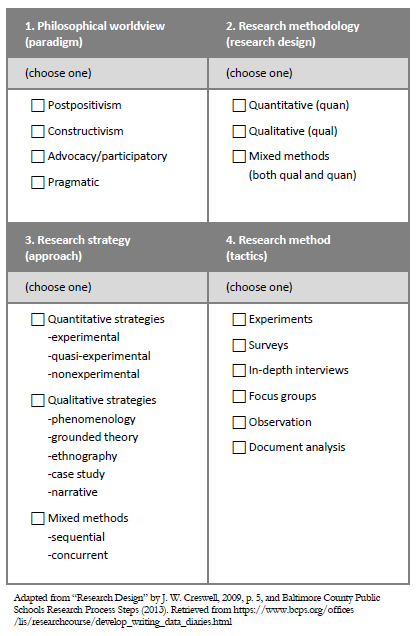When we enroll in a Ph.D. program, we’re making some assumptions about what a doctoral degree means and what it can do for us.
I made many assumptions about what it means to be in a doctoral program, some of which actually turned out to be true. For example, I assumed I was capable of doing the work, and luckily, I was, although at times I had doubts. I assumed I could complete the degree in the allotted amount of time. Fortunately, I did, barely, if you count the one-year extension I was granted. I also had an assumption about the value of a doctoral degree to my employer, which sadly turned out to be false.
Are you inadvertently holding yourself back because of your unrealistic assumptions? Here are some assumptions you might not realize you are making.
Assumption 1: You need a Ph.D. to succeed.
If you want to teach at the university level, I agree, you need a doctorate or other terminal degree. However, a doctorate is no guarantee of success, whatever success means to you. And lots of people have been successful (and maybe even happy?) without earning a doctorate. Just saying.
Assumption 2: A Ph.D. will make you happy.
Along those lines, if you are sure that finishing your dissertation and earning your doctoral degree is truly what will make you happy, then go for it. But don’t assume that you will finally be happy once you finish. If you make your happiness contingent upon achieving some external condition, whether it’s getting a new car or a doctoral degree, I fear you will be disappointed. Once the celebratory buzz wears off, you will discover that you are still the same person. And the people around you will still be the same people. A Ph.D. is not a personality transplant, for you or for your loved ones. If you can’t be happy without a Ph.D., odds are you won’t allow yourself to be happy when you have one.
Assumption 3: A Ph.D. will make you wealthy.
I bring this up just to get it out on the table. If becoming wealthy is your idea of success, if becoming wealthy is truly what will make you happy, start a tech firm or be a stockbroker. Don’t spend the next 3+ years of your life and $50,000+ in pursuit of a doctoral degree, especially if you plan on incurring student loan debt. You might get rich (whatever rich means to you) if you have a Ph.D., but you might also get rich without one. For sure, it will be a lot harder to get rich with $50,000+ in student loans hanging over your head.
Assumption 4: You deserve to have a Ph.D. just because you want one.
This assumption goes to the heart of who you believe you are. Some people believe the world owes them just for being alive. That sense of entitlement has a comical tendency to skew their perceptions of reality. Luckily, academe usually weeds out these folks. If you are one of these people, whoops, sorry if I offended you. Consider this a reality check. However, if you really feel you are entitled to a doctorate, nothing I say will change your belief, so carry on.
Assumption 5: Your Ph.D. will effortlessly come to you.
This sounds like an affirmation I used to say to myself back in the 80s. Everything I need comes to me easily and effortlessly. I manifest piles of money. I am successful, wealthy, and loved. Affirmations are nice, but there’s a reason why we resort to them. It’s because life isn’t how we would like it to be, and resorting to magical thinking seems like less work than actually taking action to change things.
Do you have a sense of entitlement?
See Assumptions 4 and 5. In every generation, some of us tend to believe we are special and deserve to have whatever we want without necessarily earning it. I don’t think it has much to do with when we were born. A sense of entitlement is something we are born with that gets nurtured or stifled, depending on environment. Sadly, dissertators who feel they are exempt from the rules don’t learn from their mistakes. Essential feedback goes unheeded because of arrogance.
Can we attribute the sense of entitlement that some of us have to generational differences? For example, I read that Millennials tend to have an inborn sense of entitlement, instilled in them by their well-meaning Baby Boomer parents. Baby Boomers, on the other hand, expect to work for what they get (and we expect to get everything we work for!). I think this might be nonsense.
Who knows? I’m not an expert on generational cohorts and personality traits; I’m just someone who recognizes from firsthand experience the hallmarks of a sense of entitlement.
How can you know if you have an inborn sense of entitlement?
Here’s a thought: When you are struggling to understand some dense article written by someone long dead, if you feel an overwhelming sense of something like, Why do I have to read this stupid stuff!? I should be exempt! … take note. There’s your clue.
The point is, that pesky feeling that we are special, somehow exempt from the rules other people have to follow can blind us to reality. Some people call it terminal uniqueness. You are special (just like everybody else). But that doesn’t mean you deserve to have whatever you want, whenever you want it, without working for it.
If doctorates were so easy to earn, everyone would have one or two. You can earn yours, but only if you are willing to do the hard work required to achieve success.
If you are running into obstacles as you work on getting your dissertation proposal approved, maybe I can help. Check out my book.








